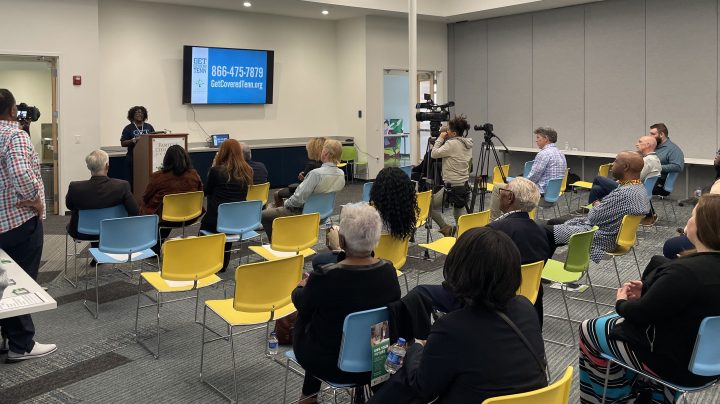
Gig workers are signing up for ACA health benefits, though many still go uncovered
Gig workers are signing up for ACA health benefits, though many still go uncovered

Paul Dodson of Liberty, Tennessee, has chronic back problems and has endured seven surgeries, including one recently. So, he kept his health care coverage through a former employer, even though it cost $1,175 a month.
After one job fell apart and the university where he was an adjunct chemistry instructor no longer needed him, he turned to the Affordable Care Act marketplace for health coverage this year.
“The gig economy? Those two words sum everything up,” he said. “Now I’m driving a little Uber just to make ends meet.”
Dodson’s still paying more than $300 a month, but he was bracing for much more, considering what it cost to keep the coverage through his old employer. “It’s saved my life,” he said.
The gig economy has offered many people a way to see work differently. And as people have turned to gig work, many are also looking into the Obamacare marketplace for health insurance, where subsidies to help pay premiums have also increased. This is expected to be another record year for open enrollment, which runs through mid-January in most states.
Many people are still somewhat confused about how the individual marketplace works, so the federal government has continued to fund navigators who help people find subsidized coverage. Sharon Barker, a navigator based in Nashville, said many of her clients tell her they felt stuck in their old jobs with limited options for benefits.
“Because most people work for their insurance. Come on, let’s be real,” she said.
Now, many are untethered from an employer — some not by choice. But others are following their passions in music or art, Barker said.
“It allows people to live their dreams, to live their lives, not to be tied to that 9-to-5 because of that benefit package.”
But some still fear that individual coverage under Obamacare will be too expensive.
A new survey of more than 4,000 gig workers from Stride Health of more finds that roughly half of those who remain uninsured had concerns about cost, even if they might qualify for lower-cost coverage. The same survey shows many gig workers are getting covered for next to nothing every month.
“There’s this huge, fractured gap in terms of education. And we’ve got a big job still to do on making sure individual Americans who either have the opportunity or need their own benefits today can understand the affordability,” said Noah Lang, founder of Stride, which also sells health benefits.
The number of uninsured gig workers in the U.S. has declined in the last few years. Still, roughly a quarter don’t have coverage, according to the Stride survey — even though many with modest incomes could get it for free.
There’s a lot happening in the world. Through it all, Marketplace is here for you.
You rely on Marketplace to break down the world’s events and tell you how it affects you in a fact-based, approachable way. We rely on your financial support to keep making that possible.
Your donation today powers the independent journalism that you rely on. For just $5/month, you can help sustain Marketplace so we can keep reporting on the things that matter to you.

















